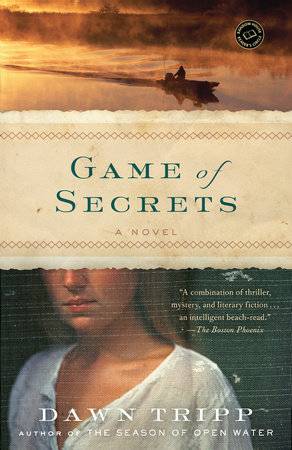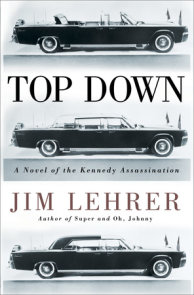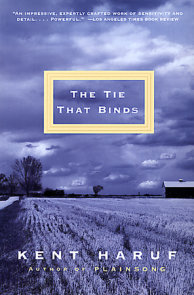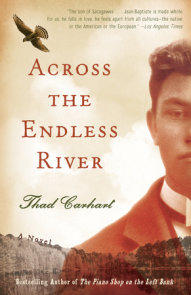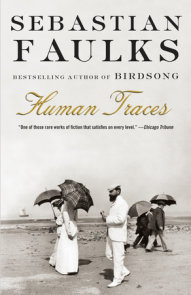READERS GUIDE
Dawn Tripp on GAME OF SECRETSMy novels start in pieces—on the page for months—fragments of character, story, scene. I write longhand, in notebooks or on scraps of paper, the backs of receipts, the leftover white space of a grocery list—which I then transcribe into my laptop. Some of those first thoughts are imagined, some are stripped from real life. But out of those pieces of raw material, I begin to map a story. I don’t polish up my early drafts. I leave some passages entirely without punctuation. I leave things untidy, open to change. That openness, I feel, is criti- cal. I find that when I can let myself stay open to possibilities in a story that I may not yet have uncovered, when I can let myself be driven by what I do not yet know, the story often turns, deepens, in un- expected, revelatory ways.
Game of Secrets started with four primary fragments—the real-life story of a skull that surfaced out of gravel fill with a bullet hole in the temple, and three images: a fourteen-year-old boy driving fast down an unfinished highway; two lovers meeting in an old cranberry barn; and two women playing Scrabble. I did not know their names. I did not know the details specific to their lives, but I could feel the under- currents of tension between them.
The image of the Scrabble game hit me especially hard. Not just because the unfolding of the mystery in the novel mirrors the play- ing of a Scrabble game: clue after clue is revealed, the story comes together piece by piece like a puzzle, as in Scrabble, disparate letters are arranged into words, which in turn are arranged into a larger co- gent grid. That image hit me hard because I have always loved Scrabble. I grew up playing with my grandmother. She taught me cards as well—pitch, gin, poker, bridge. But it was Scrabble that I loved. I remember the thrill I felt when I was old enough to keep my own letters, to have my own rack. We would play with my father after lunch and, after a game or two, my father would drift off to something else. “You want to play again, Nana?” I’d ask. And my grandmother would nod, light another cigarette, and start flipping over the tiles. We would play game after game. Until it was time for her to fix supper. Then we’d eat, clear the table, wash the dishes, I would dry them for her, then I’d ask to play again.
The idea for Game of Secrets came to me years after she was gone. The story has nothing to do with her life; the women in the story are not modeled after her, but the sense of my time with her— generational, intimate, lost—is strung all through it. As I wrote, I remembered those long childhood hours: the stillness of the house, the light tick-tack as she lay down her tiles, the smell of her cigarette balanced on the ashtray, just resting there untended, dwindling down.
And I remembered, too, things she had taught me over the years as we played. She played Scrabble for the words, as many women in her generation did. I always played for the numbers. How we play that game can reveal so much about how we tick, how we live, who we are. In Scrabble, some play to keep the board open, some play to shut it down. Some play with an eye to the sum of the total scores of all players; some play, simply, to maximize their own score. Most players will look at the board and see the words that fill it. But a really good player, a canny player—and she was one of those—will also see opportunity in the skinny spaces still left open in between.
As I wrote the scenes for Game of Secrets, the game for me became the perfect lens for a story about two women and their families bound together and divided by unspeakable secrets—a brutal past, a murder, a love story. Because what are words if not a bridge—in a game of Scrabble or in a novel? Between one person and another. Thought and reality. Past and present, present and future. Words bridge silence. Words, and the stories they comprise, bridge time.
Questions and Topics for Discussion
1. Discuss the role of love in Game of Secrets, particularly the role it plays in the lives of the three women. How does love relate to the other themes in the novel, such as longing, absence, violence, and memory?
2. Consider the differences among the three women in the novel, and how these qualities affect their interactions and the courses of their individual lives. How does the friendship between Ada and Jane impact Marne’s relationship with her mother? In what ways are Jane and Marne similar and in what ways are they different? What do the women learn about themselves through one another? Does this reflect dynamics in the female relationships in your own life?
3. What are the secrets that are kept in the novel, and who keeps them? What are the secrets that are told, and how does the telling impact the story? Are there mysteries that still remain at the novel’s end? If so, what are they and why do you think the author left them unresolved?
4. Discuss the role of silence in the novel. How do Jane and Ada, as well as the other characters, use—or refuse—language in order to build their lives and their relationships with others? Are there silences in your family and in your friendships that are necessary to keep? What do those silences represent? Discuss.
5. Luce, and the mystery surrounding his death, plays a pivotal role in the story, yet he is little more than a ghost. How does the absence of this man—rather than his presence—drive the story? How do other forms of loss function in the novel? Do you believe that ab- sence can propel us as much as or more than presence? Discuss.
6. The bridge that joins the small town of Westport to the world outside is a significant metaphor in Game of Secrets. To Jane and Ada, the bridge and the new highway also mark a distinct separation be- tween the past and the present. Discuss. In what sense does the past keep these characters together and in what sense does it break them apart?
7. Game of Secrets is a “mosaic” narrative, in that it is told from the perspective of several different characters. It also moves back and forth in time. Why do you think Tripp chose to tell the story this way? What do we learn that we might not know otherwise?
8. One central motif in the novel is the Scrabble game that Ada and Jane play every Friday. Why do you think Tripp chose this particu- lar game? Discuss the ways the structure of the narrative echoes the game that Jane and Ada play.
9. Ada and Jane have very different styles of play. What do these styles reveal about how each woman has chosen to live her life? Is your style of play more closely aligned with Jane’s or with Ada’s? What do you think this says about you, if anything? Tripp has said that Scrabble was an important game in her family while she was growing up. Are there games that have been essential in your life, and in the life of your family?
10. Marne’s hatred for Huck is overt and palpable in the novel’s early stages. Discuss what Huck represents to Marne. Are there common- alities between them as well as differences that breed Marne’s loathing? How do her feelings for him change over the course of the novel? Why? How did your understanding of Huck evolve in the course of the novel?
11. Both Jane and Marne have a particular, almost secretive relation- ship with books in Game of Secrets. Jane writes in the margins of her books of poetry, conversing in a way she doesn’t seem to do in life, while Marne excises passages from books, a habit that then evolves into her work with origami. What do Marne’s origami birds repre- sent to you? How do the birds inform her character, her life, and her relationships?
12. At the end of the novel, several essential secrets are revealed. Do these revelations change the way you understand Jane and the story? Looking back over the novel, do you now see clues you didn’t pick up on the first reading?
13. At one point, toward the end of the game, Jane says to Ada: “Love is only this: A tiny nothing, a slip of the tongue, a glance. A world can be built on a glance.” Do you agree? Discuss.









